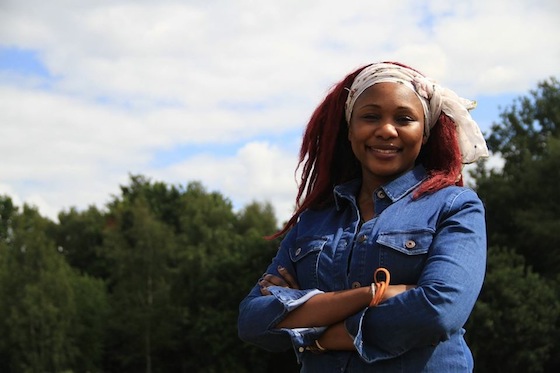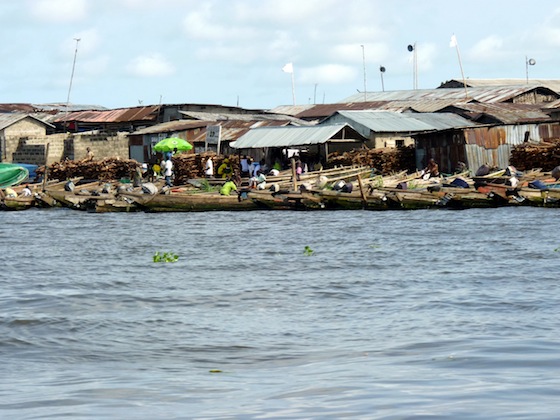Perched on the outskirts of Lagos, Nigeria’s biggest city, lies an unplanned slum settlement of approximately 250,000 people,
writes Jack Brooke-Battersby.Detached from Government support, local amenities and infrastructure, this population - The Makoko community - continues to thrive independently and fend for itself.

Ironically dubbed the “Venice of Africa”, the Makoko community largely exists on stilted housing structures, complex waterways and a minefield of bustling canoes situated upon a
heavily contaminated lagoon, which opens up into the Atlantic Ocean.
With no waste, sewage and drainage systems, there is a high case of water borne diseases, infections and infant mortality.
Water is at the crux of it all, but one sip from the lagoon may very well be detrimental to one’s health.

A self-regulated community, Makoko polices and looks after itself. Miriam Madziga, a researcher at De Montfort University Leicester (DMU) looking into environmental engineering technologies, is in the process of testing a new system which could be a huge lifeline to the Makoko population, and possibly to millions of others around the world.
Miriam has developed a unit that extracts water from the air. It is made from recycled components taken from discarded items such as refrigerators and is powered by renewable energy sources, primarily solar power.
“I’m experimenting with a technology which has proven to produce water consistently, depending on humidity levels,” Miriam said.
“My plan is to go out there to Makoko with questionnaires to get their point of view on the technology and to see if it would be the most applicable to their environment.
“It will be configured to use renewable energy sources and is expected to be a cheaper water supply solution.
“It works using a condensation system from old refrigeration systems with air and a uv (ultraviolet) filter. I’ve assembled them together for testing”
Existing systems that extract water from air are expensive, rare, and powered by electricity. Given the characteristics of the Makoko community on Lagos Lagoon, electricity supply is inaccessible.
Miriam has a background in waste and environment management, so water supply is a topic she has become familiar with over the years.
She added: “Most methods of getting clean water come from lakes and rivers or the groundwater sources and little emphasis has been given to extracting water from the air, so that piqued my curiosity.
“I found out that the principal system has been used in the past and dates back to 18th century but it is still very rare.”
Early indications show that there is huge potential in Miriam’s simple and most importantly, low-cost renewable, technology.
“So far, results generated were positive with water extracted from air at the lab at DMU. The resources like fridges are easily accessible at low costs for the community in question and the aim is to provide clean drinking water from air at cheap or affordable costs.
RELATED NEWS:
*
Come and see DMU's Faculty of Technology at our next open day*
More about research degrees at DMU *
Scientist at DMU helps save lives in Africa by driving up hospital standards“They also have weather and environmental conditions excellent for this technology. The design is set to be powered by solar energy which is of high abundance in the community.”
Should this new technology become readily accessible to the Makoko community, their health and quality of life could be vastly improved, with easy access according to Miriam.
“The key to its sustainability is to keep the technology very simple and easy to use.
“There’s a lot of industries around the location and the people are skilled, because they’ve had to be, so they’ll be able to maintain it themselves.”
Miriam plans to visit Makoko with the hopes of testing the technology as part of her research.
Posted on Tuesday 27 October 2015